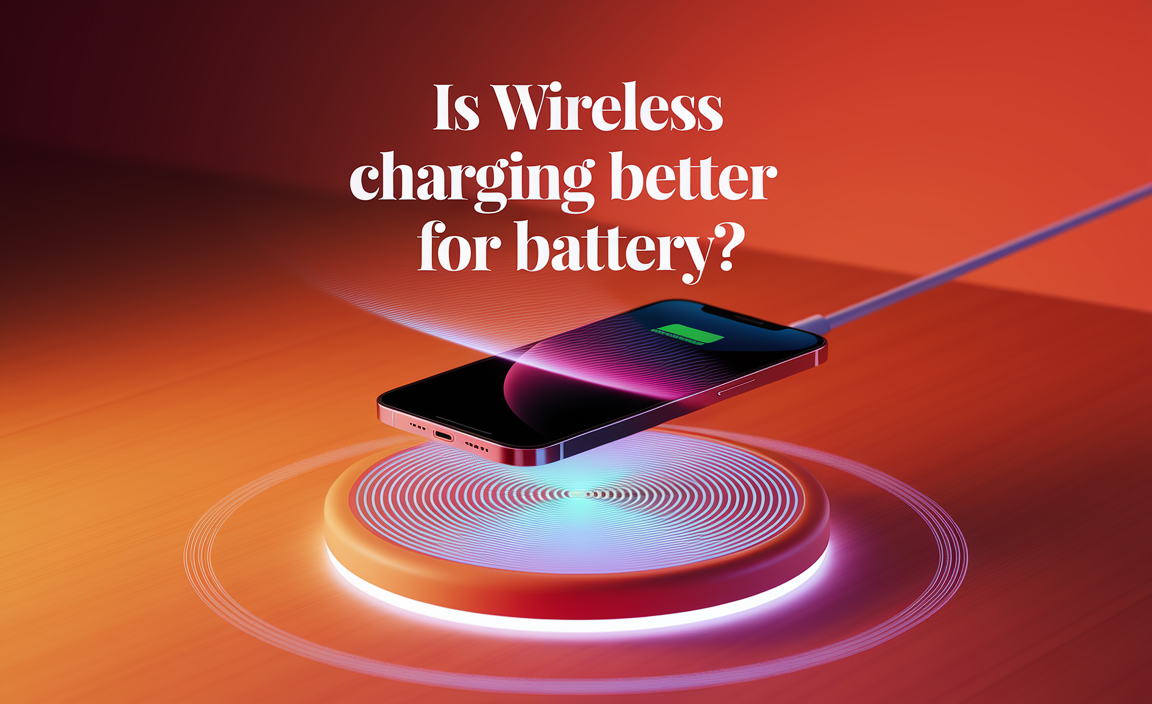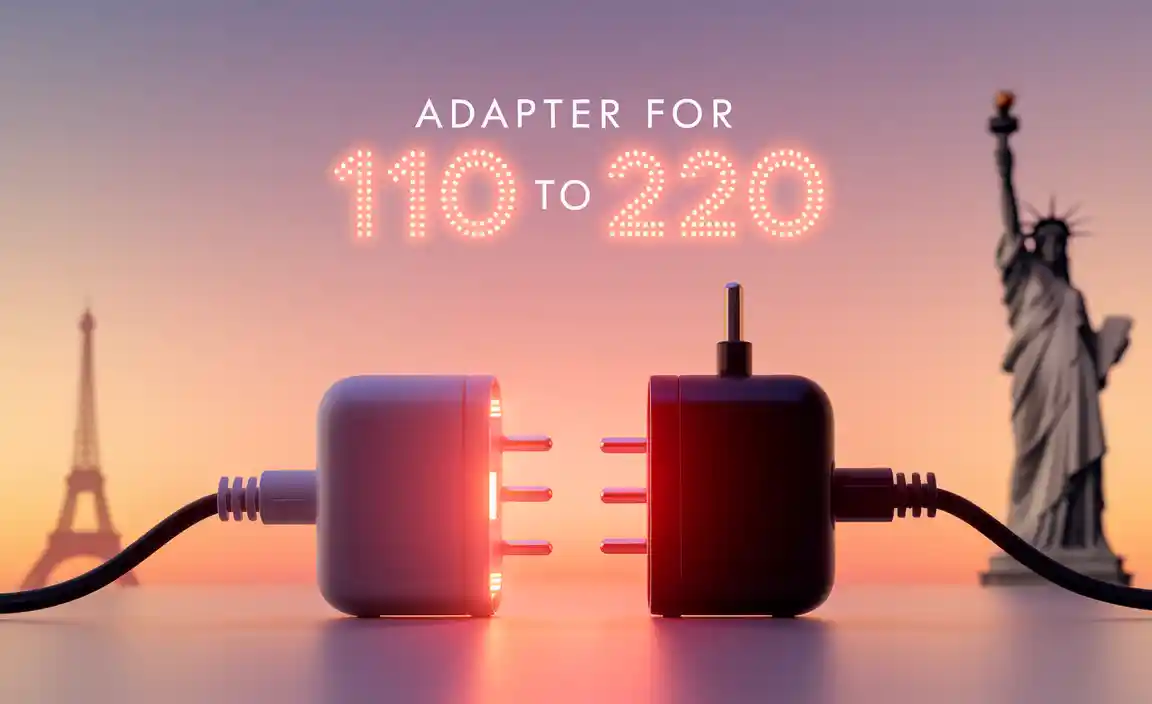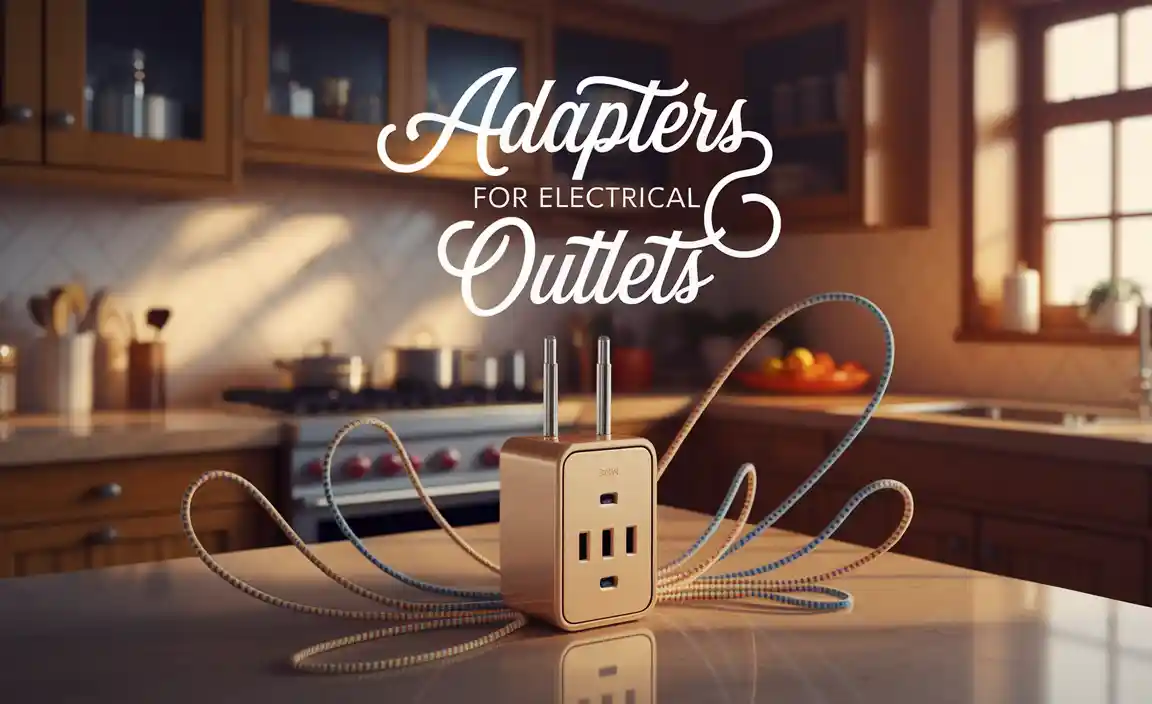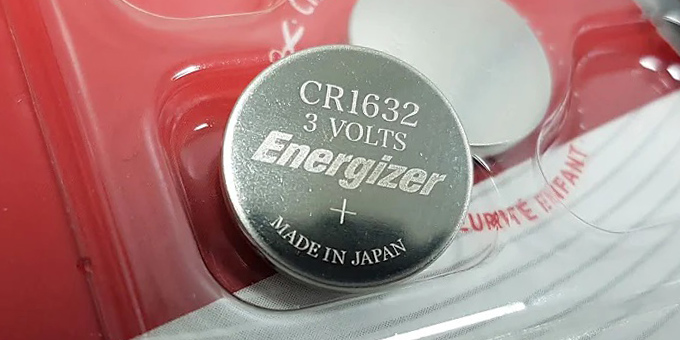Imagine a dark night, and your house suddenly loses power. What if you had a magic box that could turn on the lights? That’s what a generator does, but there’s a secret part that helps it start—the battery! Many don’t know how this battery for a generator works. It’s like the spark that turns on the magic.
Did you know you could jump-start big things like generators? It’s like jump-starting a car! Both need a little push from their batteries to get going. Now, think about your flashlight. Without its battery, it’s just a tube. In the same way, a generator needs its battery to come alive and give us light and warmth.
Let’s explore how this tiny yet powerful piece plays its role in lighting up our homes. Discover how it stores energy, just like the batteries in your remote control. Think about what happens when it fails. How would you start your generator? Stay with us to learn all about this interesting component.
The Ultimate Guide To Choosing A Battery For Generator When It Comes To Reliable Power Backup, Owning A Generator Is Essential For Many Homeowners And Businesses. However, Selecting The Right Battery For Your Generator Is Crucial To Ensure Seamless Operation When You Need It The Most. This Guide Explores The Types, Maintenance, And Lifespan Of Generator Batteries To Help You Make An Informed Decision. Types Of Generator Batteries 1. **Lead-Acid Batteries**: – **Flooded Lead-Acid**: These Batteries Are Affordable And Widely Used But Require Regular Maintenance Like Topping Up With Distilled Water. – **Sealed Lead-Acid (Sla)**: Sla Batteries Are Maintenance-Free And Leak-Proof, Making Them A Convenient Option For Many Users. 2. **Lithium-Ion Batteries**: – These Batteries Are Lighter, Have A Longer Lifespan, And Charge Faster Compared To Lead-Acid Varieties. However, They Come At A Higher Cost. Choosing The Right Battery Consider The Following Factors When Selecting A Battery For Your Generator: – **Compatibility**: Ensure The Battery Specifications Match Your Generator’S Requirements To Avoid Performance Issues. – **Capacity**: Choose A Battery With Sufficient Capacity (Measured In Amp-Hours) To Meet Your Power Needs. – **Climate Suitability**: Some Batteries Perform Better In Extreme Temperatures, So Consider Your Local Climate When Making A Choice. Maintenance Tips Even With A Low-Maintenance Battery, Routine Checks Can Extend Its Lifespan: – **Regular Inspection**: Look For Corrosion On Terminals And Clean Them As Necessary. – **Charge Management**: Deep Discharges Can Shorten Battery Life, So Maintain A Regular Charging Routine. – **Storage**: Store Batteries In A Cool, Dry Place When Not In Use To Prevent Capacity Loss. Lifespan Considerations – **Lead-Acid**: Typically Last 3-5 Years With Proper Maintenance. – **Lithium-Ion**: Can Last Over 10 Years But Are More Sensitive To Temperature Extremes. Conclusion Investing In The Right Battery For Your Generator Ensures Dependable Power During Outages, Storms, And Other Emergencies. By Understanding The Types, Maintenance Practices, And Lifespan, You Can Choose The Best Option To Keep Your Generator Running Optimally. Remember, While The Upfront Cost May Seem High, A Well-Chosen Battery Can Save You From Costly Downtime And Repairs In The Long Run.

Discovering the Power of a Battery for Generator
Have you ever wondered how a generator starts? It’s often thanks to a battery. A battery for a generator sparks life into the machine, enabling it to light up homes and games at night. Did you know these batteries need regular care? They link to the machine’s life, ensuring it starts smoothly each time. Imagine how handy it is in the great outdoors or during power cuts, always ready to come to the rescue!Understanding Generator Batteries
Differences between starting and deepcycle batteries. Importance of battery capacity and voltage. Common battery types used in generators.Generators are like the school buses of power tools—they need the right battery to get going! First, meet the two types: starting batteries and deep-cycle batteries. Starting batteries give a quick kick, like when a teacher yells, “Pop quiz!” Deep-cycle batteries last long, just like the patience required for homework. To keep a generator happy, watch its battery capacity and voltage. Many generators love lead-acid and lithium ones. Here’s a quick guide:
| Battery Type | Usage |
|---|---|
| Starting | Quick bursts; great for starting engines |
| Deep-cycle | Made for long-lasting power |
Why care about capacity and voltage? It’s like choosing between a tiny car or a big bus; you need enough juice for your trip! Choose wisely, and your generator will purr like a content cat. Most people go for lead-acid or lithium. Remember, the right choice makes for a happy generator and fewer surprises!
Factors to Consider When Choosing a Battery
Compatibility with generator models. Environmental factors and battery lifespan. Maintenance requirements and ease of use.Picking the right battery is important. Here are some things to think about:
- Compatibility: Does the battery fit your generator model? It should match up well.
- Environment: Weather matters. Some batteries work better in heat or cold.
- Lifespan: How long will it last? A longer lifespan is better.
- Maintenance: Is it easy to keep up? Less work means more play.
- Ease of Use: Can you handle it easily? Simple is always better.
What is the importance of compatibility with generator models?
**Choosing a compatible battery** ensures it works well with your generator. If it’s not compatible, it might not fit or function right. This can lead to problems or poor performance. Always check the generator manual.
How do environmental factors affect a battery’s lifespan?
Heat and cold impact how long a battery lasts. Extreme temperatures can shorten lifespan. Batteries last longer in mild weather. Keep them in a safe place.
What should you know about battery maintenance?
Simple maintenance is key. Some batteries need checking. Others need adding water. Look for ones that need less care.
Maintenance Tips:
- Check regularly.
- Clean the terminals.
- Store in a dry place.
Installation and Maintenance Tips for Generator Batteries
Stepbystep guide to installing a battery. Maintaining battery health and longevity. Troubleshooting common battery issues.Installing a battery for a generator is like fitting a key to a lock. Here’s a simple guide:
- Check the battery voltage and match it with the generator.
- Connect the positive (+) terminal first, then the negative (-).
- Secure the battery tightly to avoid shaking.
Maintaining battery health is crucial for a smooth run. Check the water levels and clean the terminals every month. If the battery dies, inspect the connections, and charge it fully before use. For common problems like low charge, adjust the charging system. Remember, a happy battery means a happy generator!
Why is regular maintenance important for generator batteries?
Regular maintenance ensures the battery lasts longer and performs well. It helps in preventing sudden failures. By taking care of the battery, you reduce the risk of power interruptions. Regular checks can save money and time in the long run.
How can you troubleshoot a dead generator battery?
First, examine the battery connections to ensure they are tight and clean. Second, check if the battery has sufficient charge. If not, charging it might solve the issue. Additionally, inspect the alternator to ensure it’s working properly. These steps assist in reviving the battery efficiently.
Safety Considerations for Using Generator Batteries
Safe handling and storage practices. Understanding battery hazards and precautions. Emergency procedures in case of battery failure.Handling generator batteries needs care. Knowing safety steps is key. Batteries can spark fires if mishandled. Always store them in a cool, dry spot. Do not place them near flames or heat. Wear gloves and goggles when touching them. If a battery fails, stay calm. Call for help immediately and keep away. Knowing these tips keeps everyone safe.
What are the dangers of generator batteries?
Generator batteries can explode or leak acid. Touching leaked acid can burn your skin. Sparks may cause fires. Always handle with caution and follow safety rules. This keeps you out of harm’s way.Safe Practices
- Wear protective gloves and goggles.
- Store in a dry area.
- Keep away from heat and flames.
- Have emergency numbers ready.
By following these crucial tips, you ensure safety while using generator batteries. Understanding their risks is essential for prevention and quick action during failures.
Advanced Solutions: Upgrading and Accessories
Benefits of battery upgrades for generators. Musthave accessories for optimal performance. How to choose the right battery charger.Upgrading your generator’s battery can offer many benefits. It makes your generator start faster and last longer. It’s also good because it saves energy. To keep your generator working best, there are must-have accessories. They include battery monitors and covers.
Choosing the perfect battery charger is important too. You need a charger that matches the battery’s type and size. It should be smart, adjusting itself to prevent over-charging.
What are the benefits of a battery upgrade?
Battery upgrades help your generator start quicker. They also make it last longer by giving more power and saving energy. They are very helpful during power outages!
How do battery upgrades help in emergencies?
- Start the generator faster
- Provide reliable power
- Prevent downtime
What accessories are essential for a generator?
To ensure optimal performance, you need some accessories. These include:
- Battery monitors to check power levels
- Covers to protect from weather
Why are covers important?
Covers keep the generator safe from rain, dust, and snow, ensuring it works properly.
How do I choose the right battery charger?
Pick a charger that matches your battery type. It should have features to prevent over-charging. A charger with automatic shut-off is ideal for safety.
Frequently Asked Questions About Generator Batteries
Addressing common misconceptions. Expert answers to common queries. Resources for further information and support.Generators powered by batteries are puzzling but fascinating! People often guess how long these batteries last. It’s like wondering how long your pet goldfish can hold its breath. Generally, generator batteries can last 3 to 5 years. But, like wearing socks with holes, it’s best to check them often.
Why won’t my generator start? Possibly, the battery is tired or just needs a snack (a.k.a. a charge). Tests with a voltmeter can help.
Ready to know more? Check out these expert-approved tips!
| Question | Expert Advice |
|---|---|
| How often should I check my generator battery? | Monthly, to avoid surprises! |
| Can I use a car battery in my generator? | It may work, but it’s like using a spoon to eat soup. Not the best, right? |
Need more help? Visit manufacturer websites or reach out to support teams, who are as helpful as your grandma with knitting tips!
Conclusion
Understanding batteries for generators helps you choose the right one. These batteries power up generators during outages. They vary in size and type, so picking the right one is important. By learning more, you ensure reliable backup power. Consider reading more to find the best battery for your needs.FAQs
What Factors Should Be Considered When Choosing The Right Battery For A Generator?When picking the right battery for a generator, you should think about a few important things. First, check the battery size so it fits the generator. Make sure it has enough power to start the generator. It’s also nice if the battery lasts a long time so you don’t change it often. Finally, see if the battery works in different weather, like hot or cold.
How Does The Battery Capacity Affect The Performance And Efficiency Of A Generator?Battery capacity is like a backpack’s size for energy. If it’s big, the generator can run longer before the energy runs out. So, you can keep your lights and gadgets on for more time. But if the battery is small, the energy finishes faster, and the generator stops sooner. More battery capacity means the generator can help you more when you need it.
What Is The Average Lifespan Of A Generator Battery, And How Can It Be Prolonged?A generator battery usually lasts about 3 to 5 years. We can make it last longer by checking it often. Keep it clean and tight, and make sure it stays charged. Also, try to store it in a cool, dry place. Looking after it well helps it work better and last longer.
How Do You Properly Maintain And Charge A Generator Battery To Ensure Reliability?To keep a generator battery reliable, check it regularly for dirt or damage. Clean it with a soft cloth if needed. Make sure the battery’s water level is good; add distilled water if it’s low. Charge the battery using a charger that matches its size and type. Store the generator in a dry and cool place when not in use.
What Are The Common Signs That A Generator Battery Needs Replacement?If your generator won’t start easily, the battery might need replacing. Listen for weird noises, like clicking, when you try to start it. Check if the lights on the generator are dim or won’t turn on. Look at the battery for any leaks or funny smells. If you see these signs, it might be time for a new battery.






